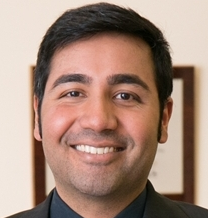
The appearance of new dark hairs on your breasts probably mean nothing, but you should see your doctor just to be sure, especially if you have additional new symptoms.
“New dark hairs on breasts should not be an immediate cause for concern,” says Tejas Patel, MD, a board certified dermatologist with Reforma Dermatology in NYC.
Many women do have dark hairs on their breasts. These pop up usually during times of normal hormonal changes such as during puberty, pregnancy or menopause.
It’s generally a harmless finding by a woman.
Concerning Cause of New Dark Breast Hairs
“These dark hairs could be due to a plethora of reasons, most likely caused by hormonal changes,” says Dr. Patel. You should visit your local dermatologist if you notice any other accompanying symptoms, as it might be of importance.
“Examples of accompanying symptoms would include acne, uncontrolled weight gain, excess hair growth, menstrual irregularities and others.”
The condition that causes these symptoms is PCOS: polycystic ovarian syndrome. Many women with PCOS are mostly concerned about the weight gain aspect.
However, with proper exercise habits and a clean, controlled diet, a healthy body weight can be maintained. Regular physical activity, including both cardio and strength training, helps regulate insulin levels and support metabolism.
Adding lean muscle to one’s body will raise the resting metabolic rate. A diet rich in whole foods — low in refined sugars and high in fiber — can reduce inflammation, improve hormone balance , and aid in weight management.
Consistency in these habits can significantly reduce the symptoms of PCOS and promote overall well-being.
PCOS Without Weight Gain Is Still Concerning
But even if you don’t gain much weight, PCOS is certainly nothing to sweep under the rug, either. That’s because complications can include miscarriage, infertility, type 2 diabetes and abnormal uterine bleeding.
Women with new-onset dark hairs on their breasts should not panic, but should also see a doctor to rule out any concerning cause and hopefully rule in the body’s normal hormonal fluctuations.










































